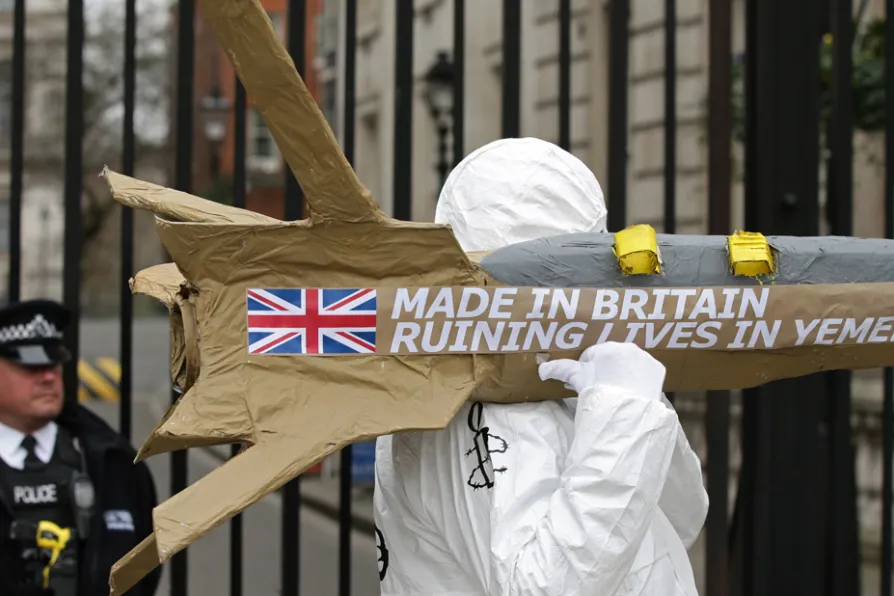As tens of thousands return to the streets for the first national Palestine march of 2026, this movement refuses to be sidelined or silenced, says PETER LEARY

 OUT IN THE OPEN: Amnesty International protest outside Downing Street
OUT IN THE OPEN: Amnesty International protest outside Downing Street
The evidence of just how destructive the UK-backed Saudi war on Yemen has been continues to flood in. Last week, two separate reports outlined the scale of brutality unleashed on the Yemeni people.
A UN High Commissioner for Refugees (UNHCR) report concluded that nearly 100 civilians were killed or injured in Yemen every week in 2018 while the preface of the Days of Judgement report from US-based University Network for Human Rights (UNHR) and Yemeni monitoring group Mwatana spells out just how dire the situation is: “In a country that was already among the poorest and most fragile in the region, 14 million people are now threatened by famine and even more depend on humanitarian assistance. While precise figures are lacking, an estimated 50,000 people have been killed as a direct effect of the war and 85,000 children may have died of hunger and preventable diseases.”
The report goes on to detail how UK weapons, almost £5 billion of which have been sold to the Kingdom of Saudi Arabia since the war began, are responsible for huge numbers of deaths.

Israel’s monopolisation of ‘aid’ to slaughter Palestinians means there is no other option: direct international intervention now, says CLAUDIA WEBBE













